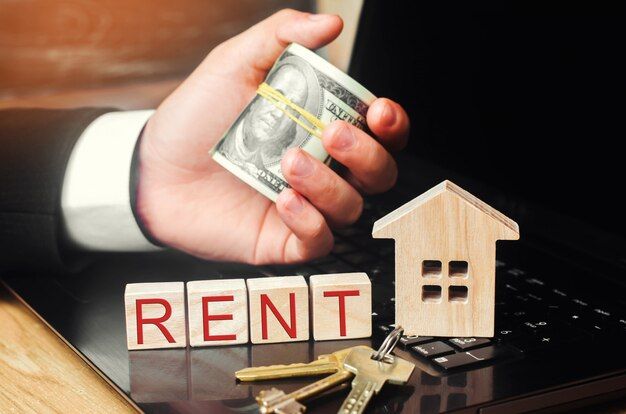What Are the Top Reasons Why Tenants Leave and How to Prevent It
Understanding why tenants leave rental properties is essential for property owners who wish to maintain steady occupancy rates and a positive relationship with their renters. Tenant turnover not only affects the landlord’s income but also involves costs and time for finding new renters. By identifying common reasons tenants choose to move and addressing these issues head-on, property owners can create a more stable and inviting living environment.
Rent increases and affordability rank high as reasons tenants move, alongside dissatisfaction with property maintenance and neighborhood conditions. Tenants seek a sense of community and safety, in addition to having their maintenance concerns addressed in a timely manner. Issues in one or more of these areas can lead to dissatisfaction and eventual decision to relocate.
Effectively managing these challenges through better communication and thoughtful tenant management strategies is crucial. Property owners can take proactive steps to address tenant concerns before they lead to turnover. By fostering strong relationships and responding to tenant needs, landlords set the foundation for a long-lasting and mutually beneficial tenancy.
Common Reasons Tenants Leave
Understanding why tenants decide to move out is key to improving retention rates. Two prevalent reasons include rent increases and dissatisfaction with maintenance.
Rent increases can be a significant burden on tenants. When rent goes up beyond their budget, tenants might start looking for more affordable options. It’s essential for landlords to balance rent hikes with the market rates and tenant satisfaction. Providing tenants with advance notice about any increase and a clear justification can help mitigate negative reactions.
Maintenance issues also drive tenants away. If repairs are not handled promptly or professionally, tenants may feel neglected. They expect their homes to be in good condition, and if property managers fail to address issues, tenants might decide to leave for a better-maintained residence. Quick responses and transparent timelines for repairs reassure tenants that their concerns are taken seriously.
Addressing these factors proactively can help keep tenants happy and reduce turnover. By setting fair rent adjustments and maintaining a prompt repair schedule, landlords can create an environment where tenants feel valued and satisfied.
Impact of Neighborhood and Amenities
The surrounding neighborhood plays a significant role in a tenant's decision to stay or leave. A lack of conveniences and safety concerns often weigh heavily on this decision.
Many tenants prioritize convenience when choosing where to live. Neighborhoods that lack nearby amenities, such as grocery stores, restaurants, and public transport options might see higher turnover rates. Tenants typically enjoy having everything they need within easy reach, and the absence of these conveniences can cause dissatisfaction.
Safety and community involvement also matter greatly. Tenants seek secure areas with low crime rates and a strong sense of community. They value neighborhoods where neighbors are familiar with each other and engage in local activities. If a neighborhood feels unsafe or lacks a community vibe, tenants may opt for areas that better meet their lifestyle needs.
By highlighting and enhancing the positive aspects of a neighborhood or even advocating for community improvements, property owners can make their rental properties more appealing. When tenants feel connected and comfortable within their neighborhood, they are more likely to set down roots and remain long-term.
Ensuring Effective Communication
Building and maintaining strong landlord-tenant relationships is fundamental for tenant satisfaction and retention. Effective communication is at the heart of these relationships. By establishing open and reliable communication channels, landlords can encourage tenants to feel comfortable discussing any issues or concerns that arise. This practice not only helps address minor issues before they escalate but also contributes to an atmosphere of trust and cooperation.
Offering various communication channels, such as phone, email, and even dedicated tenant portals, ensures tenants have access to quick and efficient ways to reach their landlords. Clear, prompt responses to tenant inquiries or requests reinforce a landlord's commitment to their tenant's well-being. Timely communication regarding maintenance updates, community events, or property enhancements keeps tenants informed and engaged with their living environment.
Regularly scheduled check-ins or feedback sessions empower tenants to share their thoughts and suggestions on property management improvements. By actively listening and responding to this feedback, landlords can demonstrate their dedication to meeting tenant needs. Strengthening communication builds long-term relationships and can significantly enhance tenant retention and satisfaction.
Strategies to Enhance Tenant Retention
Implementing strategies that prioritize tenant comfort and satisfaction can lead to high retention rates. Offering flexible lease terms is a practical approach to accommodate diverse tenant needs. Allowing options such as month-to-month leases, renewable terms, or tailored agreements suits various lifestyles and circumstances, making tenants feel valued and understood.
Encouraging tenant feedback is another effective strategy. Providing avenues for tenants to voice their opinions, whether through surveys or suggestion boxes, shows that their input is important. Acting on reasonable suggestions by making visible improvements can have a positive impact on the relationship between tenants and landlords. This active involvement creates a sense of community and partnership.
Additionally, offering incentives for lease renewals, such as minor interior upgrades or rent concessions, shows appreciation for a tenant's loyalty. Hosting occasional community events or gatherings enhances neighborly bonds and creates a welcoming environment. These strategies foster a sense of belonging and contentment, encouraging tenants to commit long-term.
Conclusion
Retaining tenants is about creating a positive and supportive living experience. By honing communication skills, offering flexibility, and actively engaging with tenant feedback, landlords can build lasting relationships. These efforts not only improve tenant satisfaction but also contribute to a stable and thriving rental community. Efficient communication and strategic planning help landlords achieve a harmonious balance between property management and tenant comfort.
For landlords seeking expert guidance in tenant retention and property management, Housing Hub offers comprehensive solutions tailored to your needs. Our team is ready to support you in creating exceptional living experiences that nurture tenant happiness and loyalty. Reach out to Housing Hub today to learn how we can assist you in elevating your Minneapolis property management approach.
You might also like
Blog






